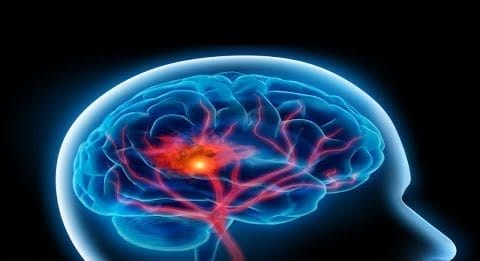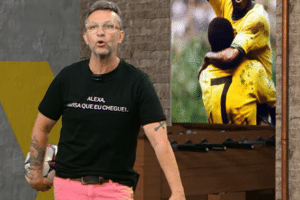November 23, 2022 – 08:08
Every year in the Netherlands around 40,000 people are hospitalized due to a stroke. About half of stroke patients are severely disabled or die. In the coming years, the number of people affected by stroke will explode explosively to more than 600,000 people. An unacceptable development for the Heart Foundation and the Brain Foundation. That is why these health funds allow large-scale research to increase the chances of a good recovery after a cerebral infarction, cerebral hemorrhage or cerebral hemorrhage.
In the treatment of a stroke, every second counts because brain tissue dies if it is deprived of oxygen. Specialists are increasingly successful in treating strokes, but there is still clearly room for improvement – for example, we still don’t know exactly who benefits from which treatment, and treatment options for bleeding in the brain are relatively limited. Rehabilitation, chronic care and care for people who have had a stroke also remain very important for the best possible recovery of brain function and quality of life.
Treat faster
A major goal of this new study, which involves a large number of healthcare facilities, is to significantly shorten the time between stroke onset and treatment. This already begins in the ambulance, where the cause of a stroke is currently difficult to determine. The use of new technologies makes it possible to carry out the correct diagnosis in the ambulance and therefore to transport the patient directly to the most suitable hospital for treatment. This concerns, for example, a smart swimming cap equipped with electrodes with which patients can be diagnosed in the ambulance if a stroke is suspected.
Keep negotiating
Even after acute treatment of a stroke, care and attention is still needed for people who survive. Previous studies from this consortium, in which radiologists, neurologists and neurosurgeons worked closely together, have already led to improvements in acute treatment after stroke. Rehabilitation doctors will also join this follow-up phase.
It is the first time in the Netherlands that all these disciplines work together in the field of stroke. The aim is to ensure that the different types of care come together seamlessly, so that problems that arise later in life can also be addressed. A large group of patients will be followed for a long time in the study. The assumption is that the better progress and degree of recovery can be seen at an early stage, the better this can be anticipated by providing the right care for the right patient at the right time and place.
More than 6000 patients with stroke
In addition, six large clinical trials will begin in which one or more new treatments will be tested. In total, more than 6,000 patients will participate in the study. The various researchers have been included in a consortium that the Heart Foundation and the Brain Foundation will finance with 4 million euros. The consortium is led by Professor of Neuroradiology Prof. Dr. Aad van der Lugt, Erasmus MC Rotterdam and Professor of Acute Neurology Prof. Dr. Yvo Roos from Amsterdam UMC.
Acute stroke treatment research is a top priority of the Heart Foundation. Many people with a stroke arrive at the hospital too late. The efforts of the Heart Foundation and the Brain Foundation aim to ensure that patients receive the right treatment on time.
“As everyone knows or can imagine, our heart, blood vessels and brain are strongly connected,” says Hans Snijder, director of the Dutch Heart Foundation. “I am therefore extremely pleased that we have been able to initiate this important research in which many parties work together with the Netherlands Brain Foundation. Doing nothing is not an option, we need to reverse the trend so that the quality of life of these patients improves.
Minimizing the burden of disease for all those who have to live with the consequences of a stroke is of great importance to the Netherlands Brain Foundation. Quality of life and continued participation in society are high on the agenda. Thanks to the collaboration between the Brain Foundation and the Heart Foundation, assistance to people who have had a stroke does not end after acute treatment. “Since Hersenstichting and Hartstichting are joining forces, we are making the unique collaboration between acute care and chronic care possible,” says Merel Heimens Visser, director of Hersenstichting. “In this way, we hope to bridge the ‘gap’ between these two disciplines and make the whole process of care feel more like a whole for the patient.”
About the Heart Foundation
A healthy heart for all before and now and after, that is the mission of the Heart Foundation. This is why we have been investing in research and innovation in the field of prevention and treatment for almost 60 years. This allows us to detect heart problems earlier, treat them better, and deliver help faster when every minute counts. In this way, together we prevent people from developing heart disease or suffering unnecessarily from heart disease. With a healthy heart you get more out of life. More information? View on www.hartstichting.nl
About the Brain Foundation
More than 4 million Dutch people have a brain disorder. Unfortunately, brain disorders are fast becoming the biggest disease in the Netherlands. This has to stop. Because a brain disorder completely disrupts the life of the patient and her loved ones. Physical, mental and social. That’s why the Brain Foundation is doing everything possible for a healthy brain for everyone. For more than 30 years we have been making connections between different types of brain disorders. We are finding more and more ways to keep the brain healthy, to treat it better, and to help people with a brain disorder participate in society. For more information, go to: www.hersenstichting.nl
About collaboration
The new consortium is part of the Dutch CardioVascular Alliance (DCVA). In the DCVA, 22 healthcare and research organizations have joined forces to accelerate solutions for cardiovascular disease. In addition to the Heart Foundation and the Brain Foundation, ZonMw and Health~Holland are also involved in funding.
This large-scale study follows up on previous research that showed patients recover better and faster if a blocked blood vessel is opened quickly. As a result, patients have less brain damage, fewer neurological disorders and function better in daily life. This has led to a new treatment that is now being used more and more around the world.


